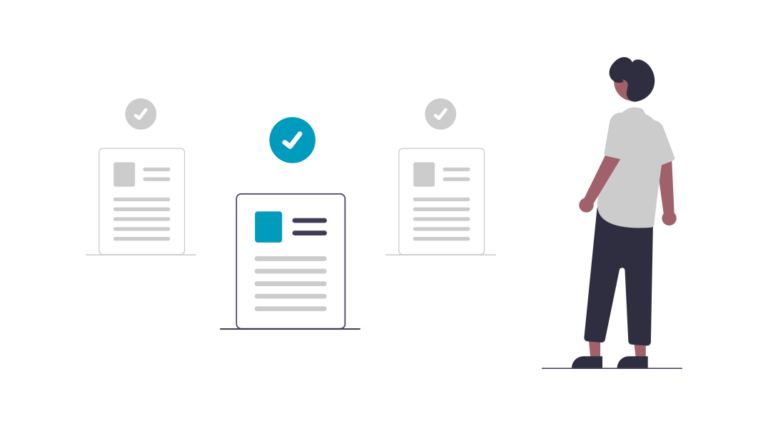How is verb tense used in academic English essays?

This is the third and final chapter about Verb Tense. To complete this reader, read each chapter carefully and then unlock and complete our materials to check your understanding.
– Introduce 150 of the most common academic verbs
– Explore the general uses of the past and present tenses
– Focus more specifically on the uses of the present and past simple tenses in academic contexts
Before you begin reading...
-
video and audio texts
-
knowledge checks and quizzes
-
skills practices, tasks and assignments
Chapter 3

Having now explored the two tenses in English (present and past) and learned how to form them, it’s time that we look more closely at how these tenses are commonly used. We’ll first explore how the past and present tenses are applied in general settings before we focus more specifically on their application and function in academic essays. We’ve included 150 verbs below which are commonly used in academic writing as these may be useful for students when constructing thesis statements, topic sentences and supporting details.
accept, achieve, adapt, advance, affect, allocate, allow, alter, analyse, appear, argue, arise, assert, assess, associate, assist, assume, attempt, avoid, base, benefit, cause, choose, cite, claim, clarify, classify, combine, compare, compete, concentrate, conclude, conduct, connect, consider, consist, constitute, construct, contrast, contribute, correspond, decline, define, demonstrate, depend, describe, design, determine, develop, differ, discuss, display, distinguish, effect, eliminate, emerge, enable, encounter, encourage, enhance, ensure, evaluate, evolve, examine, exceed, exemplify, expand, explain, express, facilitate, favour, focus, form, formulate, function, generate, highlight, identify, illustrate, imply, improve, include, increase, indicate, influence, interpret, introduce, investigate, involve, isolate, lead, limit, locate, maintain, measure, neglect, note, obtain, occur, outline, overcome, participate, perceive, possess, predict, present, prevent, produce, prove, provide, publish, pursue, quote, receive, reduce, reflect, regard, reinforce, relate, remain, remove, replace, report, represent, reproduce, require, resolve, respond, restrict, result, retain, reveal, rise, select, separate, show, solve, specify, state, strengthen, stress, study, submit, suggest, summarise, support, tend, transform, treat, undermine, undertake, vary
1. How are present and past tenses generally used?
When combined with aspects (such as progressive or perfect), the present and past tenses have a number of possible application. In their simple form however (as aspect is not the focus of this reader), these tenses are commonly able to express a limited number of functions, such as how:
- the past simple is used to express completed events which happened at a fixed point in the past: [‘The experiment was conducted last week.’]
- the present simple is used to express timeless generalisations as well as facts and commonly accepted truths: [‘Experiments are a useful research method.’]
- the future simple is used to express events which are to be completed or experienced in the future: [‘This third and final experiment will be a success.’]
While the future has been included in the above list of bullet points, please remember that this is a function of verb modality rather than verb tense.
2. How is the present tense used in academic English?
The present simple tense is the most commonly used tense in academic writing and as such is often considered the ‘default’ tense. There are six useful functions of this tense. Students can use the present simple tense when:

1. forming thesis statements
“This paper evaluates the impacts of second-hand smoking on the vulnerable population.”
2. referring to tables or figures
“The graph in figure four clearly demonstrates this increase.”
3. explaining the results of an experiment
“What these results tell us is that smoking is clearly having a damaging effect.”
4. introducing relevant source-based opinions
“Jones (2012) claims that this decrease is likely due to government campaigns.”
5. writing definitions, explanations and implications
“Tobacco smoke is a complex mixture of carcinogens and impurities.”
6. describing the findings or general ideas of a source
“Bowie’s (2020) analysis indicates a global decrease in smoking among all ages.”
3. Is the past tense also useful for essays?
Almost as common as the present simple is the past simple tense. While this tense is most commonly used to express completed actions in the past, there are a number of more specific uses for the past simple in academic contexts. This tense is, for example, helpful when:
1. referring to research results
“The results of the investigation were not as significant as hypothesised.”
2. introducing historical events
“In 1945, the second world war finally came to an end and the fighting stopped.”
3. reporting research processes
“Every participant was provided with a checklist that they had to complete.”
4. using words that indicate a past time
“After the publication, Smith (2020) continued his investigation of the high rates.”
5. providing topical background information
“The concept was first coined in 1997 when Johnson published his first paper.”
6. providing the discredited opinions of a source
“Johnson (1997) argued that manufacturers should be blamed for the increased results, but it was later found that the responsibility lay squarely in government policy.”
Good work on completing this short reader on verb tense in both general and academic contexts. If you’re looking for more uses of verbal timeframes in academic writing, then additionally visit our reader on verb aspect. Otherwise, consider unlocking, downloading and completing our worksheets about the present and past tenses to check your understanding and improve your English ability.
Downloadables
Once you’ve completed all three chapters in this short reader about Verb Tense, you might then wish to download our Chapter Worksheets to check your progress or print for your students. These professional PDF worksheets can be easily accessed for only a few Academic Marks.
Chapter 1 explores the topic: Is it true there are only two verb tenses in English? Our Chapter 1 Worksheet (containing guidance, activities and answer keys) can be accessed here at the click of a button.
Chapter 2 explores the topic: How are present and past tense verbs formed? Our Chapter 2 Worksheet (containing guidance, activities and answer keys) can be accessed here at the click of a button.
Chapter 3 explores the topic: How is verb tense used in academic English essays? Our Chapter 3 Worksheet (containing guidance, activities and answer keys) can be accessed here at the click of a button.
To save yourself 2 Marks, click on the button below to gain unlimited access to all of our Verb Tense Chapter Worksheets. This All-in-1 Pack includes every chapter, activity and answer key related this to topic in one handy and professional PDF.
Collect Academic Marks
-
100 Marks for joining
-
25 Marks for daily e-learning
-
100-200 for feedback/testimonials
-
100-500 for referring your colleages/friends